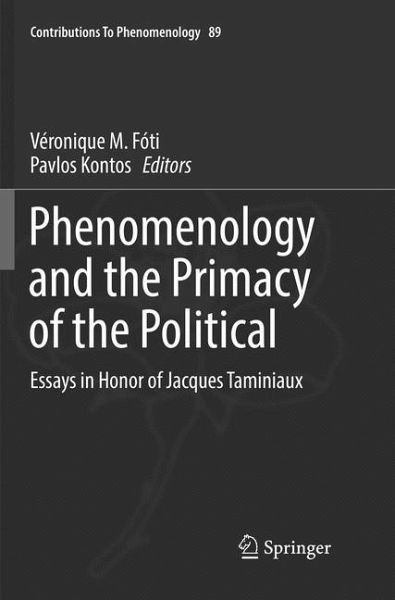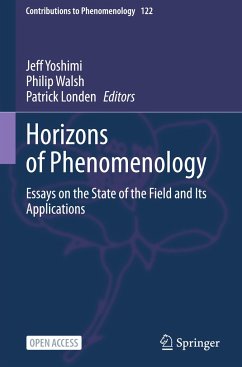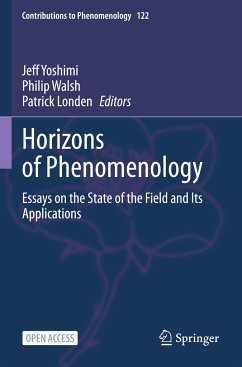
Phenomenology and the Primacy of the Political
Essays in Honor of Jacques Taminiaux
Herausgegeben: Fóti, Véronique M.; Kontos, Pavlos
Versandkostenfrei!
Versandfertig in 6-10 Tagen
106,99 €
inkl. MwSt.

PAYBACK Punkte
53 °P sammeln!
This volume is a Festschrift in honor of Jacques Taminiaux and examines the primacy of the political within phenomenology. These objectives support each other, in that Taminiaux's own intellectual itinerary brought him increasingly to an affirmation of the importance of the political. Divided into four sections, the essays contained in this volume engage with different aspects of the political dimension of phenomenology: its dialogue with classic texts of political philosophy, the political facets of phenomenological praxis, phenomenology's contribution to actual political debates, and the imp...
This volume is a Festschrift in honor of Jacques Taminiaux and examines the primacy of the political within phenomenology. These objectives support each other, in that Taminiaux's own intellectual itinerary brought him increasingly to an affirmation of the importance of the political. Divided into four sections, the essays contained in this volume engage with different aspects of the political dimension of phenomenology: its dialogue with classic texts of political philosophy, the political facets of phenomenological praxis, phenomenology's contribution to actual political debates, and the impact of Taminiaux's work in the shaping of phenomenology's notion of politics.
The phrase "the primacy of the political" echoes the "primacy of perception" as it was famously defined by Merleau-Ponty. This book emphasizes, however, the inescapability of the political rather than its "foundational" character, i.e. the fact that various itineraries of thought, explored in different fields ofphenomenological research, give rise to politically relevant reflections. It points out and elucidates political connotations that haunt phenomenological concepts, such as 'world', 'self', 'nature', 'intersubjectivity, or 'language', and traces them to a broad range of approaches, concepts, and methods. In its explorations, the book discusses a broad range of thinkers, including, but not limited to, Aristotle and Kant, Bergson, Husserl, Heidegger, Merleau-Ponty, Gadamer, Ricoeur, and Arendt.
The phrase "the primacy of the political" echoes the "primacy of perception" as it was famously defined by Merleau-Ponty. This book emphasizes, however, the inescapability of the political rather than its "foundational" character, i.e. the fact that various itineraries of thought, explored in different fields ofphenomenological research, give rise to politically relevant reflections. It points out and elucidates political connotations that haunt phenomenological concepts, such as 'world', 'self', 'nature', 'intersubjectivity, or 'language', and traces them to a broad range of approaches, concepts, and methods. In its explorations, the book discusses a broad range of thinkers, including, but not limited to, Aristotle and Kant, Bergson, Husserl, Heidegger, Merleau-Ponty, Gadamer, Ricoeur, and Arendt.












